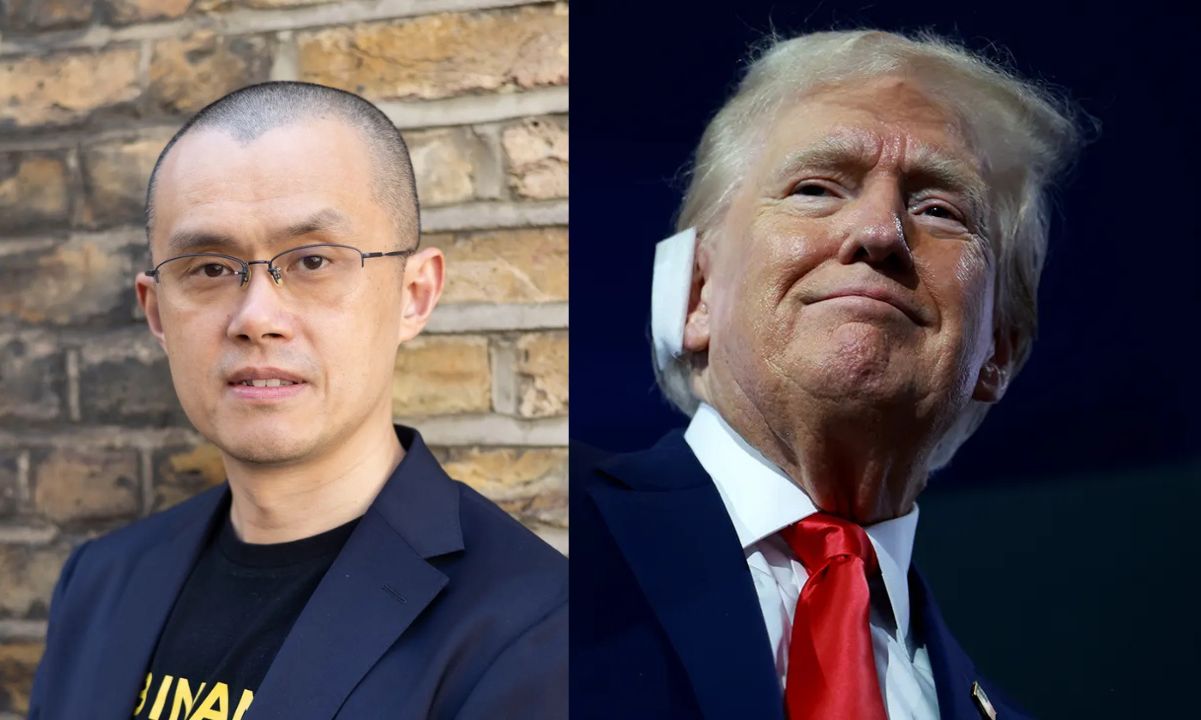When Anna Crollman felt a lump in her breast nearly 10 years ago, she was 27 years old and trying to get pregnant. Despite feeling the healthiest she had ever been, she received a shocking diagnosis: triple-positive breast cancer. In about a month, she had a single mastectomy to remove a large tumor, completed an IVF cycle, and started chemotherapy.
Crollman — who eventually had a second mastectomy, six rounds of chemo, a fertility preservation plan, and breast reconstruction surgery — is grateful she felt so confident in her doctors' expertise because, since then, she's witnessed a deluge of cancer treatment scams. One, in particular, stands out: In the first year following her diagnosis, a person close to her recommended a clinic in Mexico that strictly provided "non-toxic" and "cleansing" alternative therapies to people with cancer. "Not only did they not offer chemotherapy, radiation, or surgery, but it was also quite expensive," Crollman recalls. These centers are known to push pseudoscience and often charge tens of thousands of dollars.
Now, as a patient advocate, Crollman educates people about breast cancer and documents her life as a survivor on Instagram. All the scams she sees today stem from social media — and they've gotten smarter. "The way they market is veiled in grayness," she says. "Instead of being blatantly fraudulent, they're promising hope."
Eleonora Teplinsky, MD, a medical oncologist specializing in breast and gynecologic cancers, has seen unregulated and potentially harmful products claiming to shrink tumors or cure cancer, from high-dose vitamins and supplements to juice cleanses and other risky "detox" practices like coffee enemas.
The rise of social media has ushered in a rapid rise of misinformation, Dr. Teplinsky says. Data backs this up: A 2021 study published in the Journal of the National Cancer Institute found that, out of 200 cancer-related articles and blogs posted on various social media sites, nearly 33 percent of them contained misinformation; among these, nearly 77 percent contained harmful information. The misleading articles also got more engagement than the factual ones.
It's hard for people with cancer to avoid these murky waters — they're unfairly targeted by scammers taking advantage of their fear and vulnerability. Crollman knows this feeling all too well: the overwhelm, the constant questioning of whether you're making the right decisions. "It's a scary and isolating time," she says.
Ultimately, how you or a loved one chooses to approach cancer treatment is a highly personal decision, one that should be made with the support of a trusted healthcare professional. But if you're feeling confused about what differentiates the scams from the science, keep reading.
Experts Featured in This Article:
Eleonora Teplinsky, MD, is the head of breast and gynecologic medical oncology at Valley Health System in Paramus, New Jersey.
Henry Park, MD, MPH, is a board-certified radiation oncologist and associate professor and vice chair for clinical research in the department of therapeutic radiology at the Yale School of Medicine.
The Very Real Dangers of Cancer Scams
The most reliable cancer treatments we have, like chemotherapy and radiation, are no picnic to endure — experts don't deny that. They're not a cure, but they are powerful therapies that destroy cancer cells along with healthy cells that rapidly grow and divide. The process can be unfathomably hard on a person's body, and side effects run the gamut: heavy fatigue, hair loss, nausea and vomiting, rapid weight changes, mood fluctuations, brain fog, nerve damage, fertility problems, an increased risk of infections, and so on. Surgery is also used to remove part or all of cancerous tumors, and any surgery can trigger possible complications. There are various other types of treatment, including immunotherapy, hormone therapy, and targeted medications, at experts' disposal, too.
These options are rooted in science — backed by large-scale, FDA-approved clinical trials that have established a clear benefit. So when a person completely forgoes an evidence-based treatment for a non-proven alternative therapy, their disease can progress quickly, Dr. Teplinsky says. "The cancer has the potential, if it hasn't already, to spread to other parts of the body," she explains. "The more advanced the cancer is, the harder it is to treat and the worse the prognosis in general."
A 2017 study published in the Journal of the National Cancer Institute found that people diagnosed with breast or colorectal cancer were nearly five times more likely to die if they used an alternative therapy as their initial care plan than if they had received a standard evidence-based treatment.
Unregulated products or treatments claiming to cure cancer are a "cruel deception," according to the US Food and Drug Administration (FDA). They come in many forms: pills, capsules, powders, creams, teas, oils, treatment kits, the list goes on. Often, under the guise of being "natural," they seem harmless. In reality, unless they've been approved by the FDA as a drug or device intended to treat cancer, there's no evidence that these products have any benefits, and they may contain harmful contaminants. Even if you're undergoing chemo or radiation, taking a random supplement — including the ones at your local drugstore — without the input of your healthcare team can interfere with the efficacy of your approved treatment.
How to Protect Yourself From Cancer Scammers
The US healthcare system is broken in many ways. People with chronic illnesses often feel dismissed by their providers, steamrolled by insurance companies, and forgotten by their communities, fostering a growing distrust between patients and doctors. Dr. Teplinsky believes this problem has only spiraled since the height of the COVID pandemic.
However, she stresses, finding a physician you can trust is crucial with cancer. You shouldn't feel any hesitation bringing your questions to them — and know that they'll hear you out and give you the facts you need to make an informed plan together.
You should also listen to your gut: If something sounds too good to be true, it probably is. Here are the top questions you should ask yourself to suss out a scam:
Does this product or treatment make grand promises?
Any product that claims to be universally effective in treating all types of cancer is a red flag, says Henry Park, MD, MPH, board-certified radiation oncologist and associate professor in the department of therapeutic radiology at the Yale School of Medicine. Two people with the same cancer diagnosis might require totally different treatments. "So many biological factors influence the effectiveness and toxicities of treatment," Dr. Park explains, and even the most promising therapies "require a thorough understanding of the patient's medical history."
That's why you should also be cautious of alleged treatments that rely on a single-patient "success story" to sway you — in many cases, these folks are just paid actors.
Your doctor will also be forthcoming about the possible side effects and limitations of legitimate cancer treatments. This transparency can stir up a lot of strong emotions, including a motivation to bolster your health by any means necessary. "I've noticed a lot of the scams now prey on that feeling of wanting to care for and heal your body," Crollman says.
Be wary of anything that touts itself as a "miracle cure" or "ancient remedy" or claims to "detox" your body; ditto for anything with "secret ingredients" that "heal you from the inside out." Some scams will also rely on general scientific language like "anti-inflammatory," "shrinks malignant tumors," or "scientific breakthrough" in an attempt to mask their lack of data and evidence.
Is this information supported by a reputable source?
Just because a person on social media puts on a white coat and claims to be a medical professional, doesn't mean they actually are. "We're all looking for hope in so many places right now," Crollman says. "But how are you ensuring that the information you're consuming is real and beneficial and not just someone's wild guess or opinion on the internet?"
When you're inundated with information, that can be easier said than done. Here are a few key things to look for when you're checking the credibility of your sources:
- Does this "expert" have the right credentials? Medical oncologists (doctors who diagnose and treat cancer) will have MD or DO listed after their names; oncology nurses will typically have RN, NP, or CNS. Dietitians who specialize in cancer nutrition should have an RD or RDN in their titles. Many specialists who are research-focused will also have a PhD or MPH.
- Can I verify their credentials online? An expert's profile should be published on sites that end in .edu, an accredited college or university; .gov, an official government institution; or .org, a well-respected hospital, clinic, or other non-profit organization. The American Board of Medical Specialties also has a database that verifies the certification status, specialty, and location of any board-certified physician, which means they've spent extra time training for and staying up to date with their specialties.
- What kind of data are they sharing? Again, any treatment worth its salt should have FDA approval. A credible resource will easily point you to the robust clinical trials that back its efficacy, Dr. Teplinsky notes.
- Is this info backed by a prestigious organization? If you want to learn about a specific type of treatment, start with the American Cancer Society, the National Cancer Institute, MedlinePlus, or the FDA's site for a trustworthy overview. Many universities and hospital systems also have online information about where current therapies stand among the scientific community.
Am I being asked for a lot of money or personal information?
Even when a source checks all the boxes above, it's vital to remember that they should never 1) use the misleading marketing tactics above and 2) persistently try to sell you something.
When your BS detector starts going off, listen to it. If someone is asking you to share highly sensitive information — like passwords, security codes, or financial account numbers — and pressuring you to pay a high sum of money, especially over the phone or via direct messages, that's your cue to leave the conversation and speak with someone you trust. (The American Cancer Society also has a detailed overview of how to spot health insurance scams.)
As health tourism becomes more popular, you should also be skeptical anytime you're told you can only receive treatment in a foreign country that doesn't have medical standards or research practices on par with the US. "That's a red flag to investigate further," Crollman says.
What does my doctor think about this?
There are several complementary therapies your doctor might encourage you to explore in addition to standard medical treatment, Dr. Park says. Some examples include mind-body practices like yoga, meditation, massage, and acupuncture, and lifestyle changes like eating a well-balanced, plant-forward diet. At first, these things might seem frivolous in the face of cancer. But they can significantly improve a person's quality of life during and after treatment, Dr. Teplinsky adds.
If you see a purported treatment that gives you hope and wonder if it might make sense for you, don't hesitate to loop in your oncologist. Dr. Teplinsky would rather have her patients come to her with questions than have them secretly try a "cure." She always digs into the research behind a supplement, for example, and whether it might be helpful or harmful for a patient's personalized approach. Plus, cancer research is constantly evolving, so it's worth discussing up-and-coming treatments and whether you may qualify to participate in a clinical trial.
Today, Crollman is a "happy and healthy" mom of two, with no evidence of cancer in her body. She credits that to her swift diagnosis and treatment, and a collaborative effort with her doctor to minimize her chances of recurrence. She urges anyone dealing with this horrible disease to lean on their medical team and, ultimately, stick with the science: "We know, factually, that chemotherapy, radiation, and surgery can save people's lives."
Alisa Hrustic is a health, science, and lifestyle writer and editor with eight years of experience in digital media and service journalism. She's passionate about creating trustworthy wellness content that's rooted in science, inclusivity, and empathy. Most recently, she was the executive editor and health director at Self. She was previously the deputy editor at Prevention.com. Her work has also appeared in Men's Health and Women's Health.

 7 months ago
149
7 months ago
149








 English (US) ·
English (US) ·